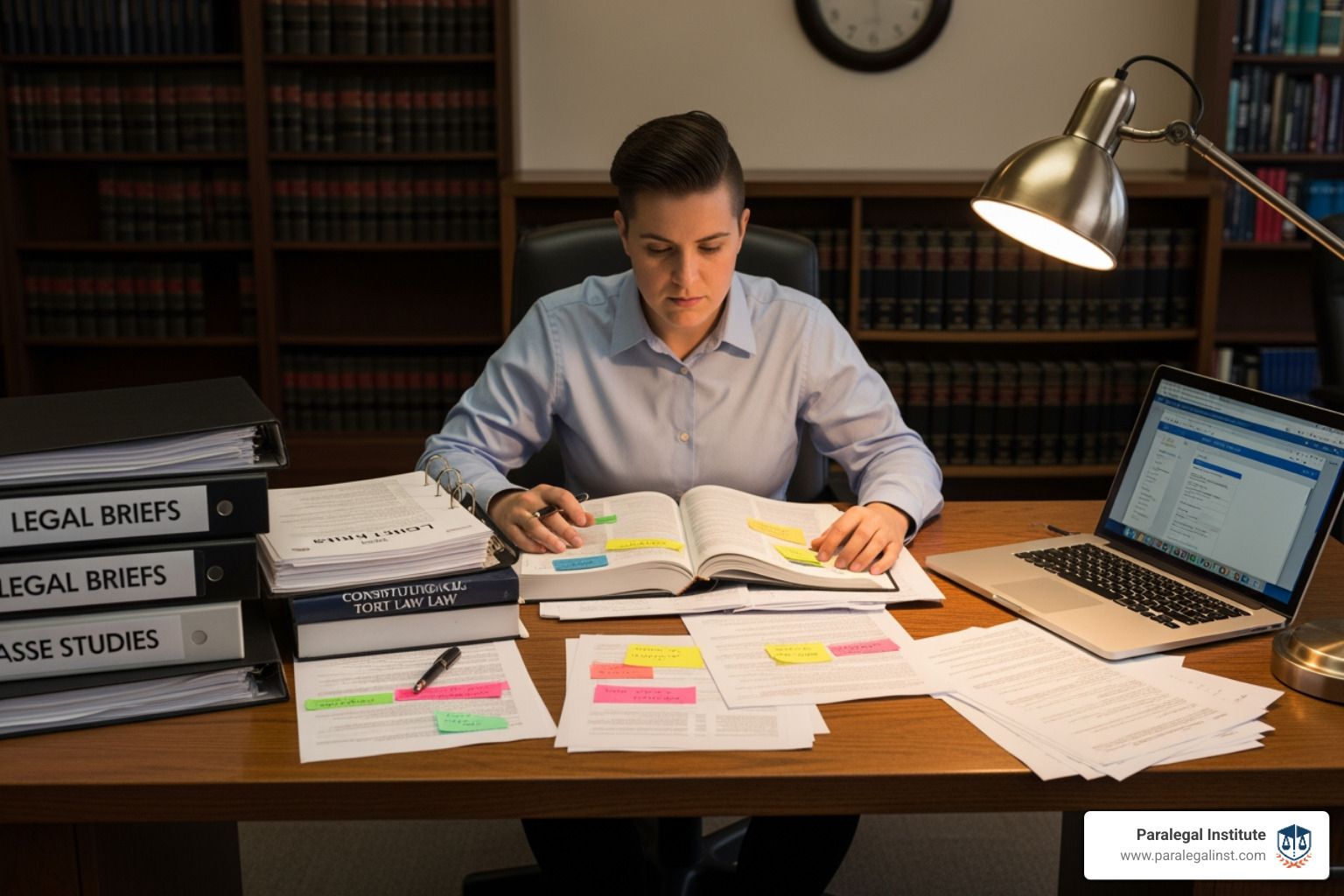Common Questions About Paralegal Certificates Answered
Have you ever wondered what a paralegal certificate is and why it's so important? Whether you're planning a career change or just exploring options in the legal field, understanding paralegal certificates can offer some clarity. These certificates play a key role in equipping individuals with the practical skills essential for stepping into the legal workspace confidently. If you're dreaming of tackling legal challenges and engaging in exciting tasks, it might be time to learn more about this career path.
Many people have questions when they first hear about paralegal certificates. What's involved in the coursework? How long does it take? What kind of job opportunities await afterward? As we unravel these common inquiries, you'll get a clearer picture of what a paralegal certificate entails and why it's such an appealing option for those looking to make their mark in the legal arena.
What Is a Paralegal Certificate?
So, what exactly is a paralegal certificate? Simply put, it's an educational program that prepares you to assist lawyers by performing a variety of legal tasks. Think of it as a passport into the world of legal support. The classes usually cover areas like legal research, drafting documents, and an introduction to various legal systems.
Most paralegal certification programs are designed to be comprehensive yet concise, often stretching over a few months. For instance, a 15-week course could have you ready to enter the workforce equipped with the skills employers are looking for. This makes the program manageable for people with busy schedules, whether you're juggling work, family, or other obligations.
Here are some typical skills you'll develop through a paralegal certification program:
- Legal Research: Become adept at finding and understanding relevant laws and precedents.
- Drafting Documents: Learn how to prepare essential legal documents like contracts or affidavits.
- Communication Skills: Gain the ability to effectively communicate complex legal information to clients and colleagues.
- Ethics and Responsibility: Understand the ethical considerations of working in a legal environment.
This structured approach ensures you receive a well-rounded education, poised to tackle varied tasks in the legal field.
Why Should You Pursue a Paralegal Certificate?
Deciding to pursue a paralegal certificate opens up a world of opportunities. Let's face it, the legal field is full of chances to make a meaningful impact, and having the right credentials can set you on the path to a rewarding career. Here are some reasons why a paralegal certificate might be your ticket to success.
First off, you'll be stepping into a career that offers a diverse range of job settings. Whether you're interested in working in a bustling city firm or a smaller local practice, the need for skilled paralegals remains strong. In a place like Las Vegas, Nevada, the demand is especially high, thanks in part to the city's continuing growth and development. Plus, paralegals can find themselves in various specializations, handling everything from real estate law to corporate affairs.
Additionally, the skills you'll learn can take you far. A paralegal certificate equips you with hands-on knowledge and experience in legal matters, making it easier for you to transition into roles that involve:
- Case Management: Oversee key aspects of case preparation and organization.
- Client Interaction: Serve as a crucial point of contact, offering support and assistance to clients.
- Research and Investigation: Gather facts and evidence, essential tasks in building a strong case.
By investing in a paralegal certificate, you're not just gaining a credential—you're building a foundation for a fulfilling career, expanding your possibilities, and enhancing your ability to find work in a dynamic environment.
How to Choose the Right Paralegal Certificate Program
Selecting the right paralegal certificate program is a crucial step in setting the foundation for your career in legal support. With so many options available, it can be a challenging decision. Here are a few factors to consider when making your choice.
First, look into the accreditation of the program. Accredited programs have been evaluated and meet certain standards of quality. This ensures that the education you receive prepares you for the job market. Checking the program's accreditation status is a straightforward way to weed out programs that might not deliver on their promises.
Next, consider the instructors' expertise. Quality education relies heavily on those who teach, so seek programs led by experienced professionals. Faculty members who have worked in the legal field bring invaluable real-world insights that can make your learning more applicable and engaging.
Evaluating the program structure is also important. You'll want a curriculum that balances theory with practical application. A strong program will cover core areas such as:
- Legal Documentation: Hands-on drafting skills.
- Research Techniques: Learning effective ways to gather legal information.
- Technology in Law: Familiarizing yourself with software and tools used in legal offices.
Finally, consider the program's location and its ties to the local legal community. For example, in Las Vegas, Nevada, a program with strong local connections can offer better networking opportunities and potential internships, which can be pivotal as you launch your career.
Common Concerns and Misconceptions
When it comes to paralegal studies, several concerns and misconceptions often surface. Let's clear up a few of these to give you peace of mind as you move forward.
One common worry is the difficulty level of the coursework. Many fear it might be as challenging as law school. While it's true that paralegal studies demand focus and dedication, the coursework is tailored to prepare you for specific tasks rather than train you as an attorney. This makes it both manageable and relevant to day-to-day legal work.
Another concern involves the costs tied to pursuing a certificate. It's important to view this as an investment in your future. Many programs offer financial aid or flexible payment plans to accommodate different financial situations. It's worth exploring these options to see what's available for you.
Time commitment often raises eyebrows, too. People wonder if they can balance study with their current commitments. Most programs are designed with adult learners in mind, offering flexible schedules or part-time study options.
Misconceptions about the role of a paralegal also persist. Paralegals often are thought to perform only administrative tasks, but in reality, they handle much more complex responsibilities like case preparation and client interaction. Understanding the diverse functions of a paralegal can help dispel these myths and highlight the potential for a satisfying career.
Wrap-Up Thoughts on Your Paralegal Journey
Navigating the world of paralegal certification can initially seem overwhelming, but taking it one step at a time sheds light on the path forward. From understanding the value of a paralegal certificate to exploring the different roles it prepares you for, this journey empowers you to make informed decisions about your future.
By choosing a reputable program with accredited coursework and seasoned instructors, you're setting yourself up for success in a fulfilling and dynamic field. A paralegal certificate can be your stepping stone to a wealth of career opportunities, and whether you're drawn to fast-paced corporate settings or prefer the charm of a local firm, the paths open to you are many. As you move forward, keep focused on your goals, and remember that the right preparation unlocks doors you might not have imagined.
As you consider taking the next steps in your career, why not explore how a
paralegal certificate could transform your professional journey? At Paralegal Institute, you’ll find programs that are thoughtfully structured to offer both engaging coursework and practical experience. This could be your gateway to exciting roles in the legal sector.










